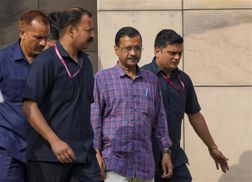
The Supreme Court has triggered a fresh round of debate on Uniform Civil Code (UCC) by once again reminding the Indian state of its constitutional obligation of having such a code applicable to all citizens, irrespective of the religion they follow.
“...the founders of the Constitution in Article 44 in Part IV dealing with the Directive Principles of State Policy had expected that the state shall endeavour to secure for the citizens a Uniform Civil Code throughout the territories of India, till date no action has been taken,” a Bench headed by Justice Deepak Gupta said.
The Bench made these comments while deciding a succession dispute under the Portuguese Civil Code, 1867, which is applicable to all residents of Goa, irrespective of their religion.
Holding that the code shall govern rights of succession and inheritance in respect of properties of a Goan domicile situated anywhere in India, the top court cited it as a “shining example” where a UCC is applicable to all, regardless of religion, “except while protecting certain limited rights”.
India has different personal laws for each religious group governing marriage, divorce, maintenance, succession, inheritance, child custody and adoption. While Hindu law has been reformed substantially since the 1950s, Muslim and Christian laws have remained stuck in the past as the State followed a policy of “let the community reform itself”.
This is not for the first time that the Supreme Court has talked about UCC. In Shah Bano’s case (1985), a Constitution Bench headed by Justice YV Chandrachud said, “A common Civil Code will help the cause of national integration by removing disparate loyalties to laws which have conflicting ideologies. No community is likely to bell the cat by making gratuitous concessions on this issue. It is the state which is charged with the duty of securing a uniform civil code for the citizens of the country and, unquestionably, it has the legislative competence to do so.”
Since then it has reminded the state of its constitutional obligation several times. In Sarla Mudgal’s case (1995), a Bench headed by Justice Kuldip Singh said: “When more than 80 per cent of the citizens (Hindus) have already been brought under the codified personal law there is no justification whatsoever to keep in abeyance, any more, the introduction of Uniform Civil Code for all citizens.”
While dealing with a Christian divorce case, a Bench headed by Justice Vikramjit Sen had in October 2015 asked the government to take a quick decision on UCC.
Those opposing UCC never forget to highlight that Article 44 falls under the “Directive Principles of State Policy” (DPSP), which is not enforceable by courts. But Article 37 — which talks of non-justiciability of DPSP makes it clear that these principles “are nevertheless fundamental in the governance of the country and it shall be the duty of the state to apply these principles in making laws”.
In its “Consultation Paper on Reform of Family Law” submitted to the government in September last year, the Law Commission had said the UCC was “neither necessary nor desirable at this stage”.
In the absence of consensus, it had said the best way forward might be to preserve the diversity of personal laws “but at the same time ensure that personal laws do not contradict fundamental rights”.
The commission had presumed that the UCC was essentially against socio-religious diversity and pluralism and gave undue importance to religion. UCC is not about religion. It’s about rights and obligations. It does not mean that every citizen — irrespective of his/her religious belief — will have to undergo the same ceremony to perform a marriage.
A Muslim, a Hindu, a Sikh or a Christian can get married as per religious rites and ceremonies of their own religion. But once the marriage is solemnised, it must be registered and the rights and obligations of the parties shall be the same, irrespective of the religion they follow.
Noting that legislative competence was one thing, the political courage to use that competence another, the SC in Shah Bano’s case said, “We understand the difficulties involved in bringing persons of different faiths and persuasions on a common platform. However, a beginning has to be made if the Constitution is to have any meaning.”



























